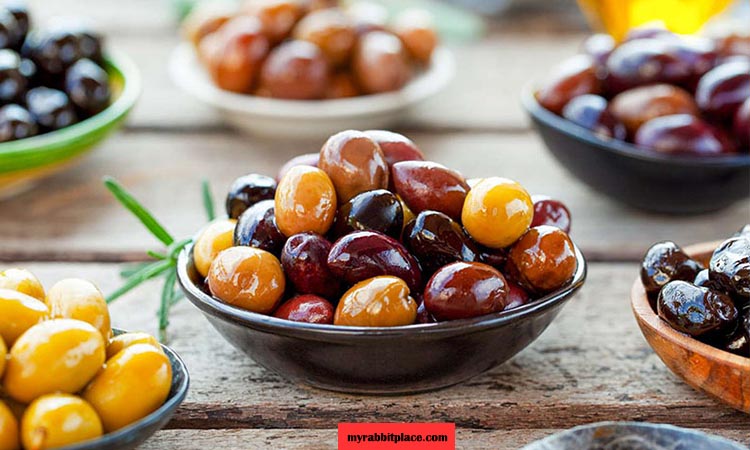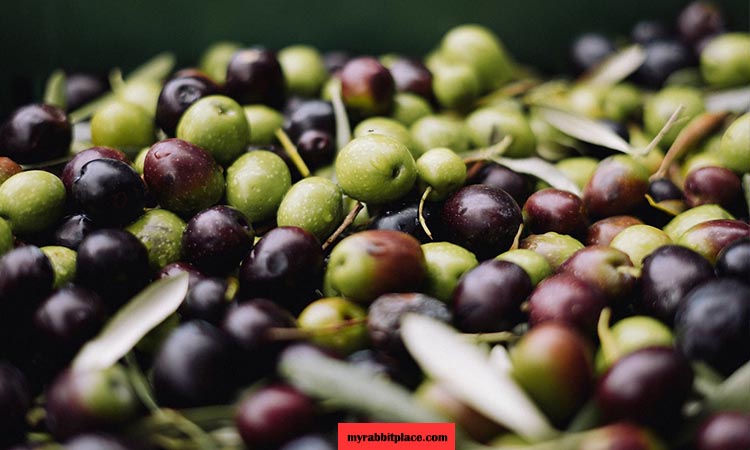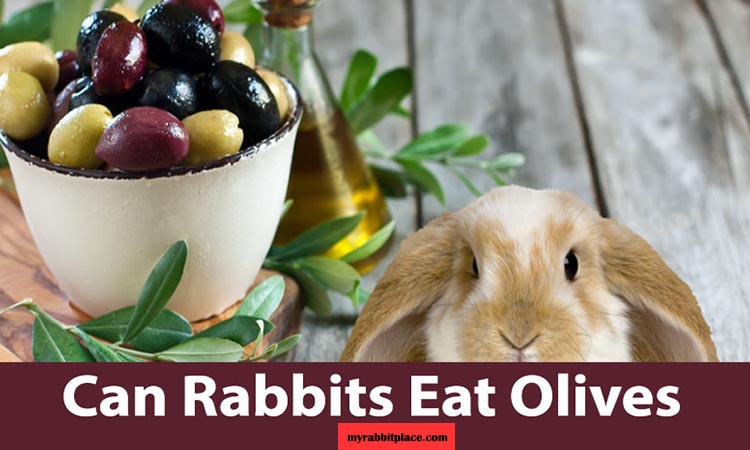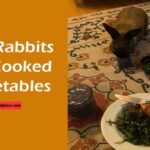Our adorable rabbits with their twitchy noses and fuzzy tails, win our hearts. But what about their bellies? Can they enjoy the same sweet treats we do? Today we tackle a thorny issue; can rabbits eat olives?
Olives, often known for their savory taste and long past, are a common food in many parts of the world. But is it safe for our bunnies to consume them? Well, this answer is not as simple as you think. Although not poisonous, offering them to your bunny needs caution and understanding.
Come with us in this journey to walk along with olives from the farm to the rabbit dish. We shall see whether olives have a good nutritional value for rabbits or not, some possible risks versus advantages as well as other safer snacks for your rabbit’s consumption. Thus be ready since this article will answer the query: Can rabbits eat olives? Discover more about rabbits in this blog post.
Olives: Not Inherently Bad, But Proceed with Caution
While it’s okay that both green and black olives aren’t directly harmful to rabbits, there’s an important point to consider. Let’s look into the reasons why you need to be really careful when giving olives to rabbits:
Fat and Sodium Overload
Think of olives as little taste explosions filled with fat and salt. It’s all well and good for humans, but rabbits may not appreciate it very much. Envision a small body that is used to low-fat, low-sodium hay abruptly handling the impact of olives.
This can lead to upset stomachs, diarrhea or even dehydration which are not something your bunny would want.
Choking Hazard Alert
The small pits and stems in olives can be a big problem for little rabbits. Because they are so tiny, smaller rabbits might try to swallow them whole, which can lead to choking.
Even a small piece of olive needs to have the pits and stems taken out carefully before giving it to your bunny.
Beware the Hidden Toxins
Be cautious because there could be some trickery involved in this matter. For example, when we see garlic, herbs or spices infused into olives during marinating we just think they are fine but that isn’t right for rabbits.
Consequently, ensure that you keep marinated olives away from the ever-investigating nose of your bunny rabbit.

Also Read - Can Rabbits Eat Sunflower Seeds?
Nutritional Value
To people who consume them, olives offer valuable fats and antioxidants but to rabbits their value is negligible. Their major dietary requirements are met by hay which supplies essential fiber and nutrients.
Not Enough Fiber: Rabbits require high levels of fiber especially from food like hay to maintain digestive health. Unfortunately, there is not much fiber in olives; so your bunny’s gut might feel a bit lonely.
Too Much Sugar: Olives have a high sugar content, which isn’t great for rabbits. It can cause problems like their teeth growing too much and even make them gain too much weight.
Missing Vitamins and Minerals: Although olives have amazing things like antioxidants, they don’t contain all the important vitamins and minerals that rabbits need. The hay and leafy greens are the real MVPs when it comes to meeting a bunny’s nutritional requirements for sound health.
Alternatives to Olives
While olives may appear as though they would be an irresistible treat, there are many other options available that are healthier and safer for your adventurous bunny.
Fresh Herbs: Experiment with more than what is merely confined in culinary upshots like basil, cilantro, and parsley not only delicious but also rich in essential nutrients. Once in a while, you could give your rabbit a small twig for taste as well as nutrition.
Hay-Based Treats: Hay cubes or balls mixed with fruits and vegetables can be found at many stores. These sweet snacks provide roughage which keeps your bunny happy, plus just enough sweetness to keep its stomach contented.
Limited Fruit Treats: In small amounts, share some bunny-safe fruits like strawberries, blueberries, or apple slices as special treats. Just remember to keep the portions small.
Remember, even though these are safer options, treats should still be given in small amounts. Hay, leafy greens, and approved store-bought treats are the main things that should make up a healthy rabbit diet.
But with these safe and interesting choices, you can add a bit of variety without harming your bunny’s health. So, go ahead, try different things, and watch your furry friend hop with joy.
When to Avoid Olives
However, giving them to your pet rabbit in certain instances is a definite no-no:
Fear of Olive Pits: Baby bunnies have sensitive and delicate tummies. It is better not to give them olives or other new foods because this could lead to stomach problems and other health complications. The best way for their development and overall well-being is by sticking with their regular meal.
Intolerant Preference: In case your bunny has an ulcer or the like, then do not feed it on olives. This would cause even more trouble from the high salt content as well as fat found in olives leaving them uncomfortable.
But Why Should You Not Give Rabbits Olives?
If you are introducing a new bunny at home, be slow to start feeding it with foods such as olives. Begin with what they have been eating before adding others gradually. Observe any signs that may indicate a problem such as abdominal bloating or diarrhea; if any of these symptoms occur, stop using olive for rabbits.
Also Read - Parsley Benefits for Rabbits - Can Rabbits Eat Parsley?
Things to Remember
Not sure if a food is okay for your bunny? Prevention is better than cure so consult your veterinarian so that he or she can advise you accordingly.
Bear in mind, that hay is the happy meal of bunnies! Just like humans need vegetables, it forms the bulk of their diets. Additionally treats like olives should be thought of as tiny birthday cakes—when consumed on rare occasions.
Don’t take your eyes off them for a moment. In case you decide to give them a little piece of olive, watch if it causes any kind of discomfort on them or even leads to digestion problems. Even a small quantity can go wrong.
Their welfare should always come first. Stick with safe and healthy foods such as leafy greens, hay, and treats approved by your vet. This will give you a happy bouncing rabbit throughout life. You must realize that rabbits do not require olives in their diet to live well.

FAQ
May I give my rabbit olives sometimes?
Technically, an extremely small and rare olive piece may not be essentially bad. However, this is highly discouraged because of the risks associated with fats, sodium, choking in rabbits and also possible toxins, especially from marinades. Seek better options and put your rabbit’s well-being first.
What are the dangers of giving my bunny olives?
Olives contain high levels of fat and sodium which are not tolerated by the digestive system of a rabbit leading to stomach upsets, diarrhea or even dehydration. The pits and stems can be choked on while marinated types may have poisonous herbs or seasonings.
Which other food items can I offer in place of olives for snacks for my rabbit?
Healthy choices include fresh herbs such as parsley, basil or cilantro. Hay-based treats that have fruits plus vegetables provide enrichment activities and safe chewing times. Some fruit like strawberries or blueberries that are safe for rabbits should be given occasionally in controlled amounts. Consult a veterinarian who knows about your pet.
Can I feed my baby bunny with some olive bit?
No way! Young bunnies have very delicate intestines that require them to strictly adhere to their prescribed diets alone. Introducing new foods into their systems such as olives can disrupt their gut flora leading to ill health in them.
My rabbit has got digestive problems. Can I give them olives?
No, it can worsen existing digestion symptoms such as diarrhea or bloating. Stay clear of any food that is not approved for rabbits by a veterinarian, such as olives.
Suppose I mistakenly overdose my rabbit with excess olive oil, what will happen?
For this reason, it is important to keep a close eye on your pet rabbit, and if they show signs of stomach upset or discomfort, consult a vet.
Conclusion
Despite their non-toxicity to rabbits, the high levels of fats, salts, and risk of choking make them unsuitable for consumption and thus their nutritional importance cannot be compared to the possible harm.
Opt for these alternative snacks that will keep your pet healthy and happy: fresh plants from your garden, toys made from hay, or a small amount of fruit.
You should consult someone who is an expert in rabbits about their diet so as not to give them olives but rather something that will not kill or endanger them.


